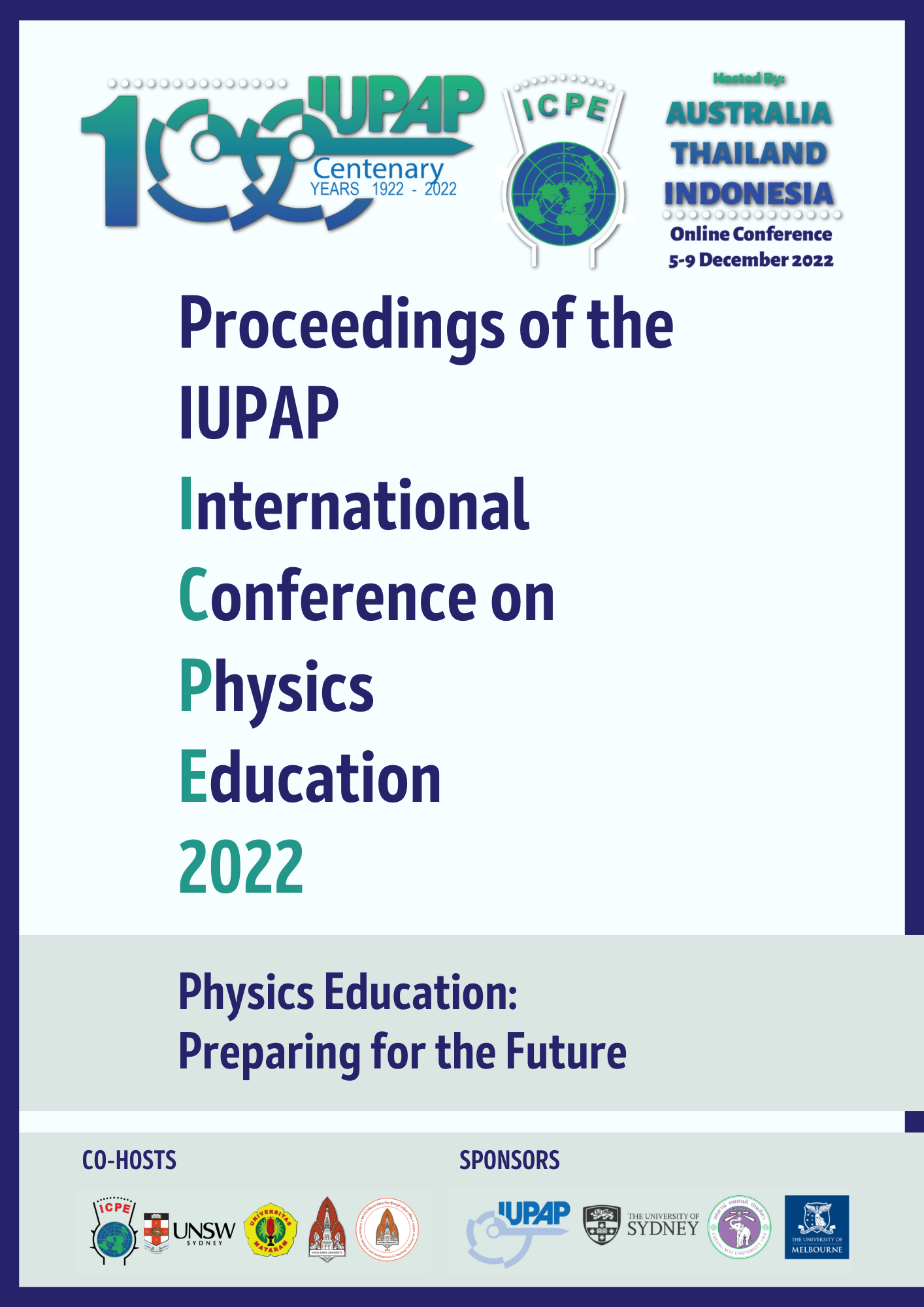The effect of interest in mathematics in students’ decision to pursue physics for higher education
Keywords:
physics education, education psychology , Quantitative PER, mathematics in physicsAbstract
Mathematics is often termed as the language of physics (Pospiech, Evlon, Bagno & Lehavi, 2015) and a major portion of course structure in undergraduate level physics comprises of mathematical physics. While there have been studies which have investigated the role played by students’ understanding of mathematical concepts in teaching-learning process of physics (Pospiech et al., 2015; Karam, 2014; Hudson & Rottmann, 1981), the question as to whether interest in mathematics acts as a motivating factor for students to pursue a career in physics, has largely been ignored. This problem is of importance because it will enable us to understand whether students are exposed to the true interdisciplinary and inseparable nature of physics and mathematics in their school, and the implications of this in their pursuit of a career in physics. We performed a survey-based research involving undergraduate students of Physics (Hons.) in four colleges of the University of Delhi, namely Hansraj College, Miranda House, Swami Shraddhanand College and Hindu College. Structured questionnaires were used to collect responses of students and the data were analysed. The main questions that we addressed were:
- Is the depth of mathematical skills required in the physics course meeting their expectations?
- Are they able to appreciate the role that mathematics plays in understanding physical concepts better in their university studies than in their school?
- How do the above factors correlate with the performance of the students?
- Are students happy and emotionally satisfied with their decision of choosing physics as their major in undergraduate studies?
The data we collected strongly indicate that a majority of students feel overwhelmed by the rigorous mathematics that is required to excel in Physics (Hons.) course. The main cause of this is that they are not coached about true interwoven nature of physics and mathematics at school level. This study we are presenting, can serve as a benchmark to emphasise the importance of introducing interdisciplinary education at secondary and high school level and also the introduction of mathematical physics at senior secondary level in the curriculum.
REFERENCESHudson, H. T., & Rottmann, R. M. (1981). Correlation between performance in physics and prior mathematics knowledge. Journal of Research in science teaching, 18(4), 291-294.
Karam, R. (2014). Framing the structural role of mathematics in physics lectures: A case study on electromagnetism. Physical Review Special Topics-Physics Education Research, 10(1), 010119.
Pospiech, G., Evlon, B., Bagno, E., Lehanvi, Y., & Geyer, M.A. (2015). The role of mathematics for physics teaching and understanding. Il nuovo cimento C, 38(3), 1-10.
Downloads
Published
Issue
Section
License
Authors who publish with the Proceedings of the International Conference on Physics Education 2022 agree to the following terms:
a) Authors retain copyright and grant the journal right of first publication with the work simultaneously licensed under a Creative Commons Attribution License (https://creativecommons.org/licenses/by/4.0/) that allows others to share the work with an acknowledgement of the work's authorship and initial publication in this journal.
b) Authors are able to enter into separate, additional contractual arrangements for the non-exclusive distribution of the journal's published version of the work (e.g., post it to an institutional repository or publish it in a book), with an acknowledgement of its initial publication in this journal.
c) Authors are permitted and encouraged to post their work online (e.g., in institutional repositories or on their website) prior to and during the submission process, as it can lead to productive exchanges, as well as earlier and greater citation of published work (See The Effect of Open Access - http://opcit.eprints.org/oacitation-biblio.html).
Privacy Statement The names and email addresses entered in the Proceedings of the International Conference on Physics Education 2022 site will be used exclusively for the stated purposes of this journal and will not be made available for any other purpose or to any other party.
